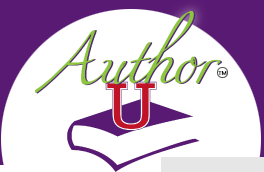 Some writers of content published on the Web think that substance holds more value than style, and if what you say is truly important, then readers will forgive your mistakes. Text messaging, email from phones and Twitter have all contributed to the acceptance of extremely abbreviated forms of communications.
Some writers of content published on the Web think that substance holds more value than style, and if what you say is truly important, then readers will forgive your mistakes. Text messaging, email from phones and Twitter have all contributed to the acceptance of extremely abbreviated forms of communications.
Wot r u 2 do? When it comes to publishing content that will never disappear on the Web, you owe it to yourself and your business to make your Web writing the best it can be.
I just bought an “old” book on Amazon: Line by Line: How to Edit Your Own Writing, by Claire Kehrwald Cook. Published in 1985, the only things out-of-date are the references to typing out a page. I thought I’d share with you here some of the good advice.
- “In reviewing your work, first tighten the wording. Then make separate checks for the errors you’re prone to. [For me, this means eliminating excess words, making sure that verb and subject are in agreement, and checking your and you’re, there and their, its and it’s, etc.]
- Skim your draft for opening danglers; test all subjects and verbs for agreement; trace every pronoun to its antecedent; look for unbalanced pairs and series. This process gives you the best chances of catching oversights.
- Those involving faulty word order, ambiguous pronouns and lack of parallel structure can be tricky to straighten out. If you get stuck, flag the trouble spot for later attention and go on. Sometimes you’ll hit on an inspired solution after you’ve given the problem a rest.
- When you think you’re done, go over the manuscript once more, looking for passages that fall short of clarity or grace. You may find that you’ve been overfond of some words or that your sentence structure needs varying.
- Try to put yourself in your reader’s place and look at your writing with a stranger’s eyes. No aspect of revising is more difficult or more important than developing critical detachment.”
In most cases we’re in a hurry to write a blog post and hit publish. That is why I advise my clients to write and save a post a day in advance of publishing. This gives you time to edit and fine-tune your writing so that it reads better on the screen.
When you have a time period between writing and publishing, you can detach from your substance, put yourself in your readers’ shoes and eyes, and edit your own writing. You can be a better judge of how your words connect and build relationships with readers.
You’ll get more attention and interaction from your people and they’ll appreciate the time and care you put into your blog writing.
What’s your favorite writing tip?














Recent Comments